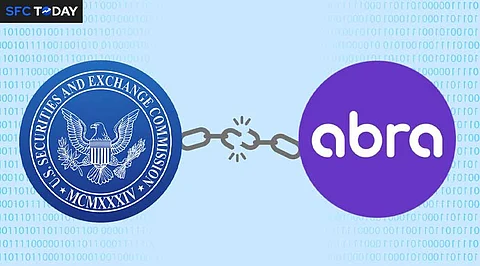

Abra, a platform owned by Plutus Lending, has reached a settlement with the U.S. Securities and Exchange Commission (SEC) over allegations related to its Abra Earn product. The SEC accused Abra of improperly promoting and selling this product as a security without the necessary registration, a violation of U.S. securities laws. The settlement marks a critical moment in the ongoing regulatory scrutiny of the crypto industry and highlights the importance of compliance in the rapidly evolving financial landscape.
This article provides an in-depth analysis of the case, exploring the background of the allegations, the specifics of the settlement, and the broader implications for the cryptocurrency market and regulatory environment.
Abra, a cryptocurrency investment platform and lender, began offering its Abra Earn product to customers in 2020. The product promised high returns for customers who allowed Abra to use their assets, essentially functioning as an investment vehicle. According to the SEC, the Abra Earn program managed approximately $600 million at its peak, with nearly $500 million of that amount coming from U.S. investors.
The SEC's complaint centered on the assertion that Abra Earn qualified as a security under U.S. law, specifically under the definition outlined in the Securities Act of 1933. Securities must be registered with the SEC to ensure that investors receive accurate and sufficient information to make informed decisions. However, Abra did not register Abra Earn as a security, nor did it register as an investment company, despite operating as one for at least two years.
This case is not Abra's first encounter with U.S. regulators. In 2020, Abra settled with both the SEC and the Commodity Futures Trading Commission (CFTC) over an investigation into its swaps product, agreeing to pay $150,000 to each agency. This history of regulatory issues underscores the challenges that crypto companies face as they navigate complex and often unclear regulatory requirements.
The SEC's complaint against Abra was rooted in the agency's interpretation of the company's activities and the economic realities of the Abra Earn product. According to the SEC, Abra Earn met the criteria for a security because it involved the pooling of investor assets, the promise of returns based on the efforts of the company, and the use of those assets for potentially speculative purposes.
Key Points of the SEC's Allegations:
Abra has agreed to settle the SEC's allegations without admitting or denying the accusations. As part of the settlement, Abra consented to a prohibition from violating U.S. securities-registration rules in the future. The company also agreed to pay whatever civil penalties a court deems appropriate, although the specific amount has not yet been determined.
In addition to the SEC settlement, Abra had already settled with 25 states for operating without the necessary licenses. As part of that settlement, Abra agreed to return as much as $82 million to U.S. customers who were affected by its unlicensed operations.
This dual settlement with both federal and state authorities underscores the broad regulatory concerns surrounding Abra's business practices. The fact that Abra has now settled with multiple regulatory bodies highlights the seriousness of the allegations and the company's willingness to resolve these issues to continue operating in the U.S. market.
Key Components of the Settlement:
The settlement between Abra and the SEC is significant not only for Abra but also for the broader cryptocurrency industry. It serves as a reminder of the importance of regulatory compliance in a rapidly evolving market and the potential consequences for companies that fail to adhere to U.S. securities laws.
The settlement between Abra and the SEC offers several important lessons for other crypto companies operating in the U.S. market. To avoid similar regulatory issues, companies should consider the following:
The settlement between Abra and the SEC is a significant development in the ongoing regulation of the cryptocurrency industry. It highlights the importance of compliance with securities laws and the potential consequences for companies that fail to adhere to regulatory standards. For the broader crypto market, the case serves as a reminder of the need for transparency, accurate disclosures, and careful evaluation of product offerings.
As the cryptocurrency industry continues to grow and evolve, regulatory scrutiny is likely to increase. Companies that proactively address compliance issues and prioritize investor protection will be better positioned to navigate the complex regulatory landscape and succeed in the long term.
For investors, the Abra case underscores the importance of due diligence when considering investments in the crypto space. By staying informed about regulatory developments and understanding the risks associated with different investment products, investors can make more informed decisions and better protect their assets in an ever-changing market.